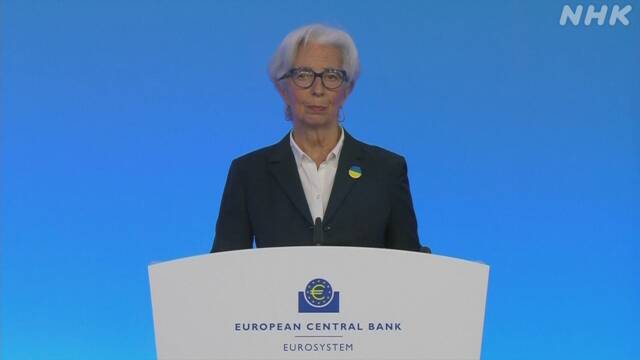On the 10th, the Central Bank of Europe decided to accelerate the reduction of quantitative easing because there is a risk that inflation in Europe will be spurred by the further rise in energy prices due to Russia's invasion of Ukraine. rice field.
The Central Bank of Europe met on the 10th to discuss the impact of the situation in Ukraine on high prices and the economy in Europe, and the immediate monetary policy based on it.
As a result, we have decided to maintain the current negative interest rate, while accelerating the pace of contraction of quantitative easing measures and urgently normalizing monetary policy.
So far, we have said that we will buy 40 billion euros a month from April to June, and more than 5 trillion yen in Japanese yen, but this will be 30 billion euros in May and 20 billion yen in June. It will be reduced to euros and the purchase will end from July to September at the earliest.
We also confirmed that the purchase of assets introduced as an emergency measure in the Corona disaster will be completed this month as planned.
In Europe, Russia's invasion of Ukraine and economic sanctions in Europe and the United States are expected to further raise energy prices, spurring inflation, which is already at record levels, and stagnation in corporate activities and trade. The situation is such that the impact on the real economy is inevitable.
The Central Bank of Europe is in a position to deal with the two challenges of upside prices and downturns in the economy.
Governor Lagarde "significantly increases uncertainty"
Central Bank of Europe Governor Christine Lagarde said in a post-Board press conference that Russia's invasion of Ukraine "has significantly increased uncertainty" about the impact of Russia's invasion of Ukraine on the European economy, due to the turmoil in international business and financial markets. He pointed out that economic activity could be significantly slowed down.
Regarding high prices, he said, "The war in Ukraine poses a risk of rising energy prices in particular." He said that high prices are widespread and that some food and commodity prices may rise further. ..

